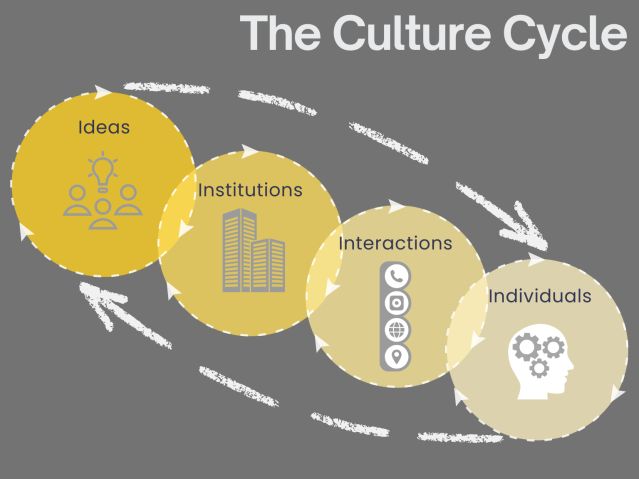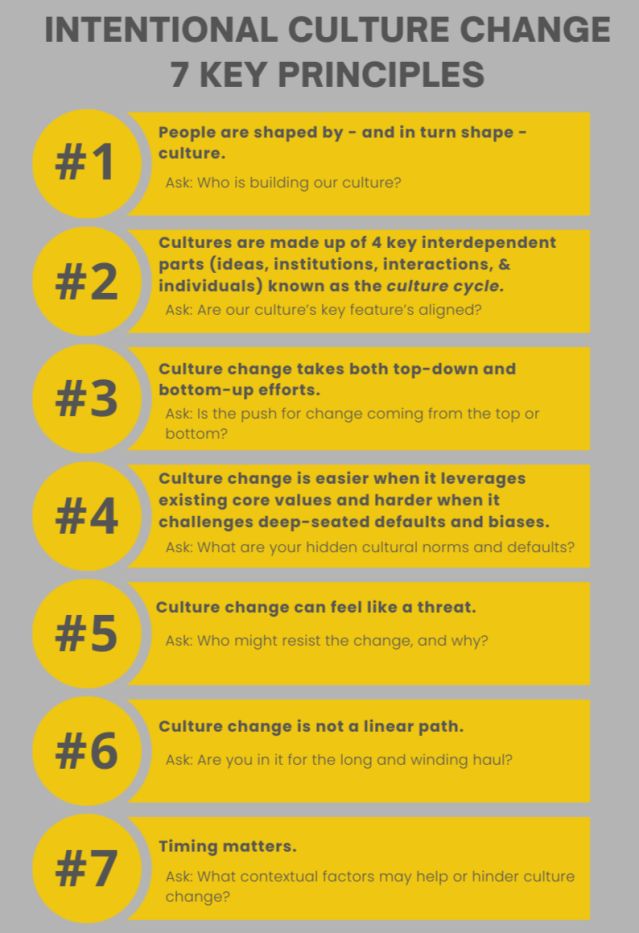Who's Really in Charge of Workplace Culture Change?
Workplace culture change represents one of the most critical challenges facing modern organizations. Your ultimate guide to navigating this complex transformation reveals that successful change requires collaboration between leadership and employees. As organizations grapple with post-pandemic realities and evolving employee expectations, understanding who drives cultural shifts becomes essential for sustainable success.
Understanding Modern Workplace Culture Dynamics
Today's organizations face a cultural crossroads between "rise and grind" and "wellness-focused" approaches. Companies like Amazon and AT&T champion high-performance cultures with mandatory office attendance, while others prioritize employee well-being through flexible arrangements. According to Harvard researchers (2024), this tension reflects deeper organizational values about work-life balance and performance expectations.
Stanford researchers note that effective workplace culture change must address both productivity and employee satisfaction. The current "Great Detachment" identified by Gallup shows worker engagement at decade lows, highlighting the urgent need for thoughtful cultural transformation.
People Also Ask: Key Questions About Cultural Transformation
What Drives Successful Workplace Culture Change?
Successful workplace culture change requires balanced leadership commitment and employee buy-in. Organizations that excel at cultural transformation typically involve stakeholders at all levels, creating shared ownership of the change process. Research shows that lasting change emerges when both formal policies and informal practices align.
How Does Top-Down Culture Change Work?
Top-down workplace culture change initiatives originate from leadership and institutional policies. These changes typically focus on structural adjustments, formal procedures, and strategic direction. While powerful, they often require careful implementation to avoid resistance and ensure genuine adoption throughout the organization.
What Role Do Employees Play in Cultural Shifts?
Employees drive bottom-up workplace culture change through daily interactions, informal norms, and collective action. Grassroots initiatives often address practical workplace challenges and can significantly influence overall cultural evolution. When employees feel empowered to suggest improvements, cultural change becomes more authentic and sustainable.
Your Ultimate Guide to Implementing Cultural Transformation
This comprehensive approach to workplace culture change combines research-backed strategies with practical implementation steps. Begin by assessing your current cultural landscape, then develop a phased transformation plan that engages all stakeholders.

Building Effective Change Strategies
Successful workplace culture change requires these key elements:
- Clear vision and communication from leadership
- Employee involvement in planning and implementation
- Measurable objectives and progress tracking
- Continuous feedback mechanisms
- Adaptive approaches that evolve with organizational needs
Integrating Leadership and Employee Efforts
Bridge builders play crucial roles in facilitating workplace culture change by connecting different organizational levels. These individuals or teams help translate leadership vision into practical employee actions while ensuring frontline perspectives inform strategic decisions.
"Cultural transformation succeeds when organizations balance structural changes with human-centered approaches," notes organizational development expert Dr. Elena Martinez.
Practical Implementation Steps
- Conduct cultural assessment - Identify current strengths and improvement areas
- Establish cross-functional teams - Include representatives from all organizational levels
- Develop shared objectives - Create alignment around cultural priorities
- Implement pilot programs - Test approaches before full-scale rollout
- Measure and adjust - Use data to refine strategies continuously
Real-World Examples of Successful Transformation
Beyond the examples in original research, companies like Microsoft and Unilever have demonstrated effective workplace culture change through comprehensive approaches. Microsoft's cultural shift under Satya Nadella combined leadership vision with employee empowerment, while Unilever's sustainable living plan integrated cultural values with business strategy.
Modern organizations increasingly recognize that workplace culture change isn't about choosing between top-down or bottom-up approaches, but rather integrating both for comprehensive transformation.

Key Takeaways for Sustainable Cultural Evolution
Effective workplace culture change requires ongoing commitment rather than one-time initiatives. Organizations that succeed typically embrace these principles:
- Cultural change is continuous - Not a destination but an ongoing journey
- Authentic engagement matters - Surface-level changes rarely produce lasting results
- Measurement drives improvement - Track both quantitative and qualitative indicators
- Adaptability is essential - Be prepared to adjust strategies based on feedback
Ultimately, successful workplace culture change represents a shared responsibility between leadership and employees, requiring consistent effort and mutual understanding across the organization.










